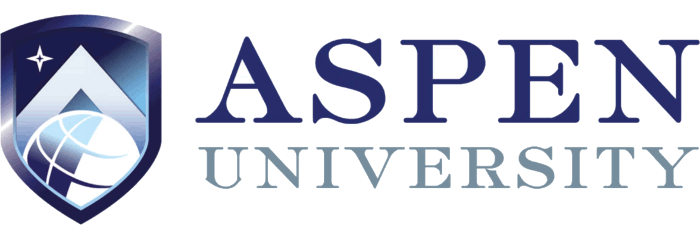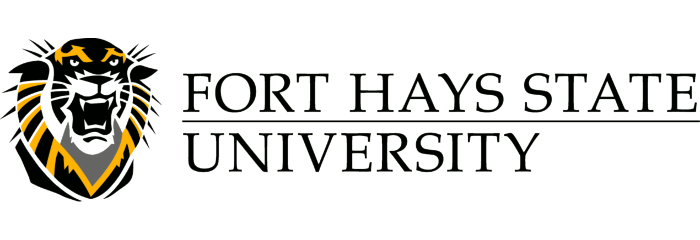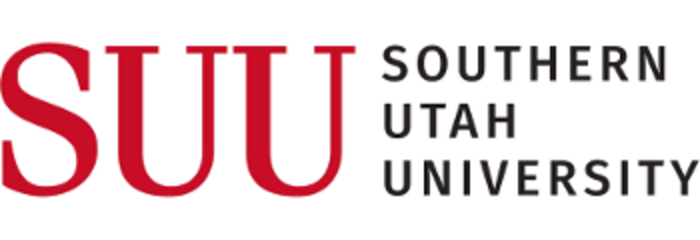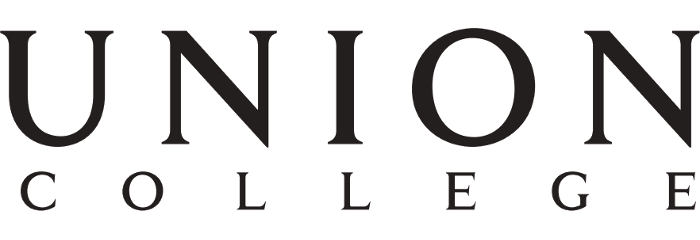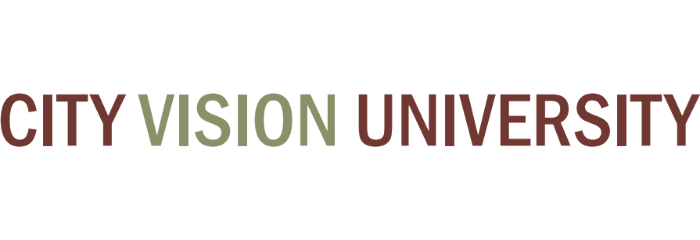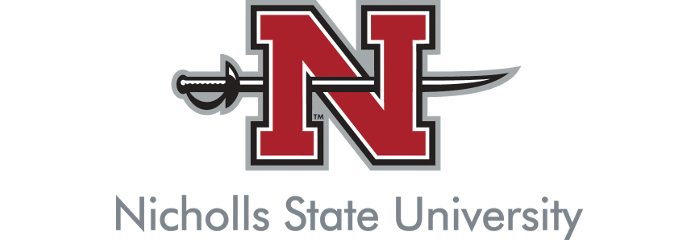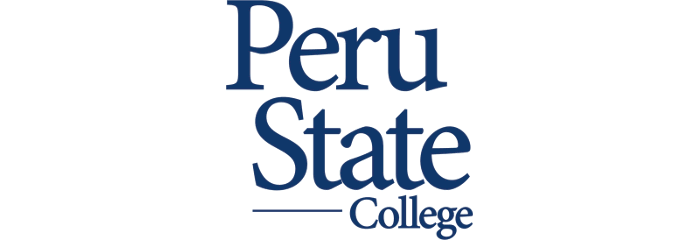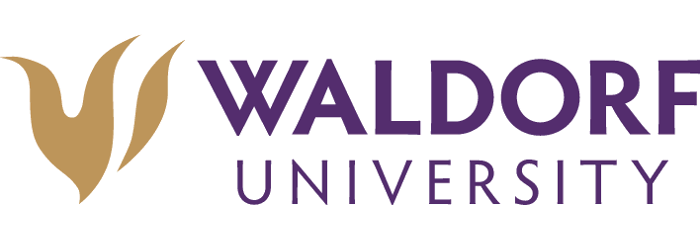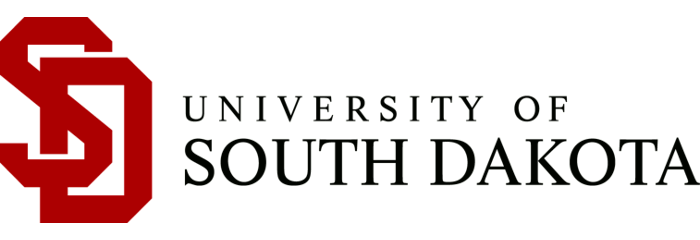2023 Most Affordable Online Colleges for Counseling Degrees
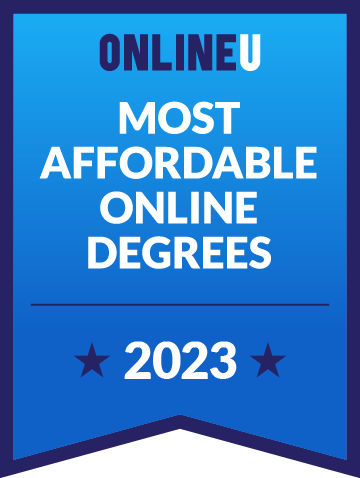
An online degree in counseling is an excellent choice for those who want a fulfilling career in the social services sector. A bachelor’s program in counseling is an introductory degree that can explore substance abuse counseling, psychology, ethics, and family studies.
While graduates of this online degree can obtain entry-level positions, many pursue further education. After completing a bachelor’s degree in counseling online, graduates have the knowledge and skill needed to pursue a master’s degree in counseling or a PhD in counseling. However, for those who are uninterested in advanced studies, careers like case managers, program directors, or counseling assistants typically accept a bachelor’s degree in counseling.
View our methodology for more details about rankings or learn more about us. You can also check out our overall list of the most affordable online degrees for further inspiration.
ON THIS PAGE
Online Degree Worth It Courses Costs Funding| Rank | School | Locations | Annual Tuition |
|---|---|---|---|
| Aspen University | Denver (CO) | $6,000 | |
| Fort Hays State University | Hays (KS) | $6,806 | |
| Southern Utah University | Cedar City (UT) | $7,200 | |
| Union College - KY | Barbourville (KY) | $7,425 | |
| City Vision University | Kansas City (MO) | $7,500 | |
| Hobe Sound Bible College | Hobe Sound (FL) | $7,756 | |
| Nicholls State University | Thibodaux (LA) | $8,250 | |
| Peru State College | Peru (NE) | $8,970 | |
| Waldorf University | Forest City (IA) | $9,300 | |
| University of South Dakota | Vermillion (SD) | $10,643 |
Aspen University Denver (CO) Aspen University (Aspen) — a medium-sized, private, for-profit institution — offers a Bachelor of Arts in Psychology and Addiction Studies for those seeking an online counseling degree. This 120-credit-hour program includes courses that students typically complete in three to four years. Students learn about various subjects, including addiction studies, addiction prevention, assessment and treatment, and healthcare ethics. At Aspen, students use Brightspace by D2L to complete coursework in an asynchronous format, meaning that they can complete assignments at their own pace. Online student support includes academic advising and tech services. The program’s admission requirements include an application, official transcripts, a minimum 2.0 GPA, and, if applicable, military documentation or a transfer credit evaluation.
|
Fort Hays State University Hays (KS) Fort Hays State University (FHSU) offers an online Bachelor of Arts or Science in Sociology - Addictions Counseling. Either option offers a concentration in Addictions Counseling for students interested in becoming licensed addiction counselors. Both curricula include courses in general education, sociology, and addictions counseling, as well as practicum internships. At FHSU, students complete coursework synchronously through the Blackboard learning management system, which usually entails live classroom chats. Online students receive software and technical support, tutoring, a writing center, and career services. The program’s admission requirements include an application, official transcripts, and ACT/SAT scores.
|
Southern Utah University Cedar City (UT) Southern Utah University (SUU) is a medium-sized, public institution that offers an online Bachelor of Science in Family Life and Human Development - Family Studies requiring 120 credit hours. In this program, students can expect to learn about family processes and theories in order to help families develop more stable and positive relationships. Sample coursework includes Introduction to Social Work and Family Services, Family Processes and Theory, and Principles of Effective Parenting. SUU facilities asynchronous and synchronous online learning through the platform, Canvas. Online students can also access tutoring, technical support, and the school's writing center. The program’s admission requirements are an application, transcripts, and ACT/SAT scores.
|
Union College - KY Barbourville (KY) Union College - KY is a medium-sized, private nonprofit institution offering an online Bachelor of Science in Substance Abuse Counseling that requires 120 credits. Students can accelerate the degree program through fast-paced courses and choose from six start dates per year. The curriculum includes liberal education courses and core courses about chemical dependency, psychology, and recovery. A substance abuse internship is also required. Learning is synchronous, with course terms that span eight weeks and have specific start dates. Online coursework is delivered through Union College’s uLearn platform. Online students also receive access to a range of resources, including 24/7 support for the online platform, virtual research guides, tutoring, and career research tools. To apply, prospective students must complete an application form and submit official transcripts, documentation of high school graduation or GED, and, if applicable, documentation of military training, specialized training, and/or standardized testing.
|
City Vision University Kansas City (MO) City Vision University (CVU) is a small, private nonprofit Christian institution offering a Bachelor’s in Addiction Counseling, an accredited online "Christian bachelor’s degree" requiring 120 credit hours. Students must select a concentration (Clinical Counseling or Christian Recovery Ministry Concentration) to add to their degree in order to graduate. Sample coursework includes Introduction to Christian Addiction, Case Management, and Family Issues and Recovery. CVU facilitates online learning via Canvas. Online student support includes academic counseling and disability services. The program’s admission requirements are an application and official transcripts.
|
Hobe Sound Bible College Hobe Sound (FL) Hobe Sound Bible College (HSBC) is a small, private nonprofit institution offering an online Bachelor of Arts in Counseling that requires 129 credit hours. The program provides students with the knowledge and skills needed for Christian-based counseling. In addition, students can add the Christian Counseling minor to their degree, which covers topics like marriage counseling, crisis counseling, and lifespan development. Sample coursework includes Introduction to Counseling, Marriage Counseling, and Family Therapy. At HSBC, remote students complete coursework on an online learning management system, and online students can also virtually access counseling services and HSBC's bookstore. Admission requirements are an application and either a high school diploma or its equivalent.
|
Nicholls State University Thibodaux (LA) At Nicholls State University (Nicholls) — a public institution with a medium-sized student population — students can pursue an online Bachelor of Arts in Psychology - Pre Counseling requiring 120 credit hours. This program’s curriculum incorporates modern counseling methods for families and individuals. In addition, the program prepares students for further education in psychology or counseling. A few of the program’s courses include Abnormal Psychology, Families in Crisis, and Psychology of Counseling. Nicholls facilitates asynchronous and synchronous online learning through the platform, Moodle. Online student support includes tutoring services, an online library, and remote counseling. The program’s admission requirements are an application, the completion of the Regents’ Core 4 Curriculum, a minimum high school GPA of 2.0, and at least an ACT score of 21 or an SAT score of 1060.
|
Peru State College Peru (NE) Peru State College (Peru) is a small, public institution that offers an online Bachelor of Science in Criminal Justice - Justice Counseling requiring 120 credit hours. In this program, students can explore how counseling works in the criminal justice system. Sample coursework includes Introduction to Corrections, Survey of Criminal Justice, and Behavior Management. At Peru, online students complete coursework delivered on Canvas, the school's learning management system. Remote students can also access an online library, academic advising, and IT support. Admission requirements are an application and either official high school or college transcripts.
|
Waldorf University Learn more about how we make money."> Forest City (IA) Waldorf University (Waldorf) is a medium-sized, private, and for-profit institution offering an online Bachelor of Arts in Psychology - Mental Health and Counseling. This 120-credit-hour program prepares students who are interested in entering the field of social work, psychology, and counseling. Students can expect a broad overview of what counseling entails, which can help them once they enter graduate school. Waldorf facilitates online coursework that's delivered in an asynchronous or synchronous format through Blackboard. Online students can also virtually access academic advising, a success center, and the school's library. The program’s admission requirements include an application, evidence of completing a high school diploma or its equivalent, and any other official transcripts.
|
University of South Dakota Vermillion (SD) At the University of South Dakota (USD), a medium-sized, public institution, prospective students can pursue an online Bachelor of Science or Arts in Addiction Counseling and Prevention. Either program requires 120 credit hours, and students can choose from two specializations to add to their degree title: (1) Treatment or (2) Prevention. Sample coursework includes Study of Alcohol Use and Addiction, Fundamental Skills of Individual Counseling for Addiction, and Addictive Family Systems and Family Counseling. At USD, online students complete coursework — which is delivered both asynchronously and synchronously — on the learning management system, Blackboard. Online student support includes academic advising, tutoring services, and a writing center. The program's admission requirements are an application, official high school transcripts, and official ACT/SAT scores.
|
Can I Get a Counseling Degree Online?
Students today have access to a wide range of online bachelor's programs in counseling, psychology, sociology, and related fields. Some bachelor's programs offer specializations, such as addiction counseling and substance use, marriage and family, Christian counseling, offender rehabilitation, and victim advocacy. These options prepare students to meet the unique needs of specific populations in a counseling setting. If you're considering a career in counseling, earning a bachelor's degree — whether online or in-person — is often only the first step toward achieving your professional goals. Most professional counseling positions also require a master's degree for state licensure.
Counselors typically follow a few different career paths depending on their interests:
- Some pursue roles as school counselors, where they either work with children and teenagers in grades K-12 or adults in a higher education setting.
- Others become mental health counselors and work in clinical settings. This may involve a focus with specific populations, such as older adults, children, couples, or families.
- Substance use and addiction counselors work with individuals to help them overcome reliance on drugs, alcohol, and other substances that negatively impact their health and well-being.
- Some counselors work with people who are incarcerated. They support them in prison and during their transition after release.
Online programs follow the same curriculum and degree path as campus-based programs. Many students prefer to take online classes due to their convenience, flexibility, and affordability. Some online programs include livestreaming classes held at set times, while others allow students to watch prerecorded lectures on their own time. Also, online classes are often available as accelerated part-time or full-time courses of study. Lastly, online degrees appeal to many students because they can be significantly more affordable.
Students interested in pursuing a counseling degree online should always seek an accredited program.
All the programs listed on this page are offered through accredited colleges and universities. Accreditation ensures colleges and universities are held to universal academic standards and indicates to schools/employers that graduates have received a quality education. Students interested in pursuing a counseling degree online should always seek an accredited program.
Is an Online Degree in Counseling Worth It?
When considering whether an online counseling degree is worth it, students should think about their professional and personal goals, why they're interested in the field, how much time and money they can invest in their education, and what they'll ultimately get out of it.
Professional counselors work directly with patients to help them overcome emotional, psychological, social, and physical difficulties that impact their personal life. Counselors connect people with the resources and tools they need to help them improve their overall health and well-being. If you feel compelled to work as a counselor, you'll likely need to earn a bachelor's and master's degree in order to become licensed, and an online degree is a viable option for either degree.
While a graduate degree in counseling is a requirement for licensure and certification, students do not need a bachelor's degree in counseling to enter a master's program or even the field. Those who earn their bachelor's degree in another field are still eligible to apply to a master's program in counseling, but they may need to complete additional prerequisites. There are also opportunities to work in counseling without a degree, such as through non-profits or working as a peer counselor, case manager, or an aid to a counselor.
Counseling Careers
It's also important to consider how much money you'll make after graduation and the employment rates for your chosen career path. The following salary data and job growth outlooks provided by the Bureau of Labor Statistics (BLS) can provide prospective students with a clearer picture of how their financial future may look in each career path. From the list of counseling careers below, school and career counselors tend to earn the highest median salaries, while rehabilitation counselors earn the lowest. Projected growth in jobs is highest for substance abuse, behavioral disorder, and mental health counselors, and it is lowest for correctional treatment specialists.
Correctional Treatment Specialists
Some counselors train to work with people who are either in prison or have been recently released. They provide direct support to people as they transition out of correctional facilities by creating rehabilitation plans that may include substance abuse counseling, job training, securing safe housing, and other resources/services. These counselors also administer drug testing and help people comply with other requirements upon their release from prison.
- Job Outlook: The BLS places probation officers and correctional treatment specialists in a single category. They have a projected growth rate of 4%, which aligns with the national average for all occupations.
- Salary: Probation officers and correctional treatment specialists earn median salaries of $54,290 per year (or $26.10 per hour).
Marriage and Family Therapists
These therapists help couples and families work through a variety of issues to improve interpersonal relationships within their family.
- Job Outlook: The BLS projects a rapid growth rate of 22% from 2019 to 2029 for marriage and family therapists.
- Salary: Professionals in the field earn median salaries of $49,610 per year (or $23.85 per hour). Counselors who work for state governments earn significantly higher median salaries at $72,230 per year on average. Meanwhile, those who work in outpatient care centers earn approximately $52,140 per year.
Rehabilitation Counselors
Rehabilitation counselors work with patients who have physical, mental, developmental, or emotional disabilities to help them overcome any setbacks or limitations they may experience. This can include coordinating care, accessing resources or services, working with employers to help them understand employee needs, and helping clients work through any issues they experience in their life due to their disability.
- Job Outlook: The need for rehabilitation counselors is projected to grow by 10% from 2019 to 2029.
- Salary: Rehabilitation counselors earn median salaries of $35,950 per year (or $17.28 per hour) according to the BLS. Those employed by state governments (excluding education and hospital employees) earn the highest average salaries for this job at $51,260 per year.
School and Career Counselors
School counselors work with students in K-12 or college settings to help them navigate the academic, social, and emotional landscapes while enrolled in school. Career counselors, on the other hand, work with individuals in various stages of their professional life to support them in shaping their careers by determining some professional goals and the steps to achieve them.
- Job Outlook: The need for school and career counselors is projected to grow by 8% from 2019 to 2029, which is twice as fast as the national average of 4% for all occupations
- Salary: School and career counselors have the highest median salary rates for counseling occupations at $57,040 per year (or $27.42 an hour).
Substance Abuse, Behavioral Disorder, and Mental Health Counselors
The BLS combines these three roles into one occupation. Although they can be distinct, often crossover exists between the positions.
- Job Outlook: Compared to the national average of 4% for all jobs, this specialty has significantly higher employment rates than many other occupations. Especially as states begin to shift away from incarcerating people with drug/alcohol addiction in favor of court-ordered treatment and counseling services, the need for substance abuse, behavioral disorder, and mental health counselors is projected to grow by 25% from 2019 to 2029.
- Salary: Counselors in this field earn a median salary of $46,240 per year (or $22.23 per hour). Those who work for government agencies earn the highest wages at $52,720 per year. Hospitals are also a top industry for counselors in this field, as hospital employees earn median salaries of $49,100 per year.
Common Bachelor of Counseling Courses
Course requirements for a bachelor's in counseling differ by program but generally cover a few core subjects that prepare students to work with individuals experiencing challenges. Below are some of the most common program courses, which are intended to give students a firm foundation in the history and best ethical practices of the counseling profession.
- Behavior Disorders of Children and Adolescents: Many counseling programs require a course sequence that covers issues that may occur across a lifespan. This course introduces theories of human development and methods for diagnosing and treating behavioral problems in youth. Students learn to examine the social contexts of their patients — including race, class, and gender — and the effects they have on their behavior.
- Case Management: In this course, students learn the administrative side of their chosen field. The faculty teaches client assessment, treatment plan options, and the legal requirements associated with effective record keeping. Topics covered in this course may include treatment in various clinical settings, the assessment of a patient's home, and stress management related to caseloads.
- Ethics in Counseling: This course presents a history of ethics in counseling and the currently accepted standards of ethical behavior. Professors often present hypothetical scenarios in which the correct behavior isn't immediately clear. Students focus on learning how to build trust with clients by adhering to legal mandates governing intervention, record keeping, and patient confidentiality.
- Group Process: This course can be useful for understanding the social pressures on different client populations. Specifically, professors discuss the formation and function of various groups. The topics covered include social dynamics, leadership styles, and communication within a wider group.
- Crisis Intervention: Students study how to assess clients who are experiencing mental health crises and apply proven techniques to improve the situation. They will be asked to consider the legal landscape and the ethical requirements of intervening in both real and hypothetical situations. Students who take this course as part of a concentration (e.g., substance abuse counseling) may be able to focus their work on scenarios related to their preferred population.
- Pharmacology in Addictions Counseling: This course teaches the physiological basis of addiction. The aim is to better understand the brain chemistry underlying chemical dependency and the effects that various substances have on different body systems. This course may also cover prescription drug interactions and discuss how scientists design clinical trials to test the safety of drugs.
How Much Does an Online Counseling Degree Cost?
Generally speaking, online degree programs are more affordable than campus-based programs. In this list of affordable online counseling degrees, tuition ranges from $4,500 to $13,500 per year. The degree’s cost depends on where you enroll and how many credits a program requires to graduate. For the 2020-21 school year, the average tuition rates for all online degree programs at public universities were $12,570 per year, while private colleges charged an average of $14,068 per year for online programs. On average, public universities are more affordable than private ones. Although, schools may offer institutional grants and scholarships to help reduce your education cost.
- Public Universities: $12,570 per year
- Private Universities: $14,068 per year
A degree’s cost also depends on whether you have credits from a prior college experience that you can transfer and apply toward your degree. Online programs often have flexible transfer policies that allow students to reduce the number of credits they need to finish their degree. Many attend community college to earn credits at a lower cost. Then, they can later apply these credits to their bachelor's degree (in accordance with individual school transfer policies). Alternatively, a student may decide to transfer their online college credits to an on-campus program.
Funding an Online Bachelor of Counseling
Students earning their online bachelor's in counseling qualify for the same financial aid as campus-based students. Financial aid comes from federal and state governments, colleges/universities, and private organizations (e.g., nonprofits or businesses). Federal and state aid is typically in the form of grants, work-study funding, and student loans. Scholarships from your college/university, your program department, private businesses, and nonprofit organizations can also help offset the cost of tuition and other educational expenses.
More than half of employers offer tuition programs as part of their employee benefits package.
Some students may also qualify for tuition assistance through their work. According to a 2019 study from the Society of Human Resources Management, more than half of employers offer tuition programs as part of their employee benefits package. Military students, veterans, and their families can also qualify for aid through the GI Bill and other military tuition programs.
Always check program eligibility requirements to make sure you qualify, as certain factors may play a role, like accreditation or funding. Contact the financial aid office at your college to make sure any financial aid you receive can be applied toward your online degree.
Applying for Aid
Students apply for most types of aid by using the Free Application for Federal Student Aid (FAFSA). This form determines a student’s financial need and eligibility for federal funding and additional aid from your state and university. Our comprehensive FAFSA guide describes how the application process works and some common mistakes to avoid when filling out the form.
After exhausting other financial aid options, students may take out federal or private student loans to help bridge the gap between gift aid and the cost of higher education. Federal student loans are generally preferred over private lenders due to their low fixed-interest rates and flexible repayment options.
While undocumented students are ineligible to receive federal financial aid, they qualify for grants in some states. Alongside state aid, many undocumented students use scholarships to help pay for their education, as some are open to students regardless of citizenship while others are specifically for undocumented students, like those listed by Immigrants Rising.
Where to Look for Additional Financial Assistance
Check with your program department and the financial aid office at your school to find out about additional funding opportunities. The following scholarships are open to counseling students pursuing a bachelor's degree:
| Scholarship | Eligibility Requirements | Amount |
|---|---|---|
| Addiction Awareness Scholarship Campaign |
| $1,500 |
| Lullellia W. Harrison Counseling Scholarship |
| Varies |
| Elevate Mental Health Awareness Scholarship |
| $500 |
Related Articles
2023 Most Affordable Online Colleges & Degrees
The top affordable online colleges of 2023. Find cheap online associate, bachelors, master's, and doctoral degrees.
By OnlineU Staff Writers | 2/9/2023
